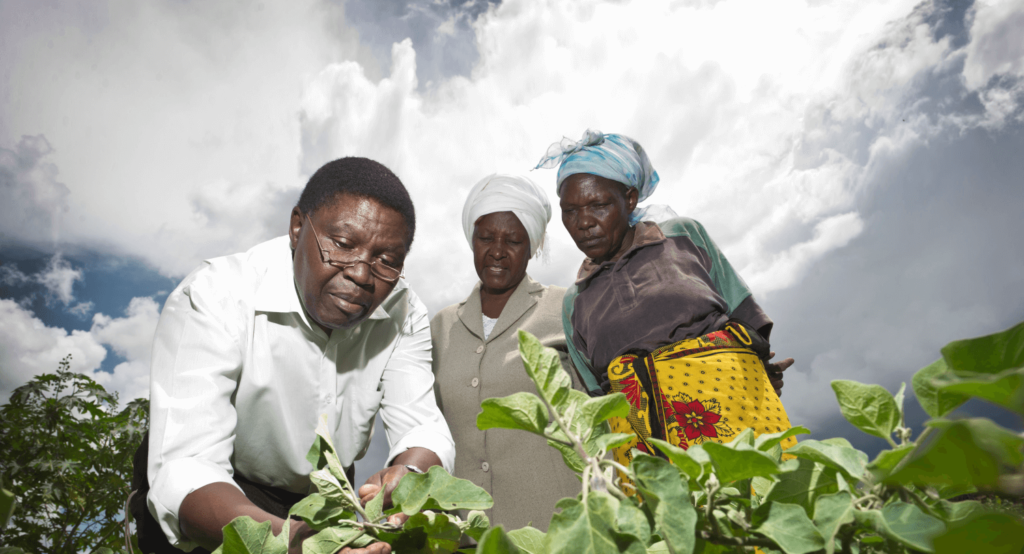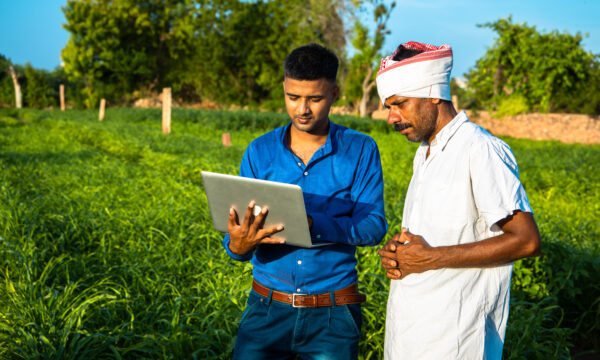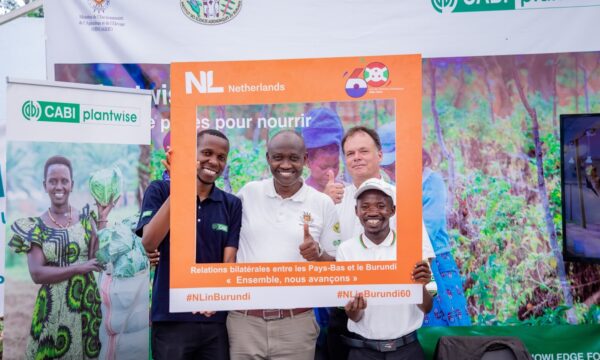
Over the last ten years, the global Plantwise programme has helped farmers lose less of what they grow to plant health problems. CABI’s newly published report, Sustainability of Plantwise: an assessment after 10 years of the programme, examines the programme’s sustainability and how Plantwise can contribute to lasting change.
Since its launch in 2011, the programme has supported smallholder farmers across the world. Plantwise helps them to lose less of what they grow to pests and diseases, improving food security and strengthening rural livelihoods.
Plant Clinics
The programme has set up a network of plant clinics where local agricultural advisory officers (plant doctors) help farmers struggling with plant pests and diseases by providing diagnoses and management advice. To date, 13,000 plant doctors have been trained and 5,000 plant clinics established. The programme has reach 54 million farmers in 34 countries around the world.
Open Access Information
Alongside these plant clinics, Plantwise has developed a number of digital innovations to help support rural farmers. The open-access plant health information available on the Knowledge Bank provides practical online and offline plant health information and reinforces agricultural advisory services. There are also a number of Plantwise apps available, providing pest risk alerts, e-learning modules and diagnostic services.
However, it is important that these, and other aspects of the Plantwise programme, contribute to long-term positive change to improve farmers’ yields and incomes. The report provides a deeper understanding of what aspects of the Plantwise programme are operating within countries and whether or not these are likely to continue beyond donor funding.
Sustainability
The report found that many aspects of the CABI Plantwise programme are sustainable. In particular, the link between stakeholders is very likely to remain. The introduction of tablets and the creation of social network groups have linked plant doctors to peers, experts and farmers. These groups are expected to continue to talk to one another through informal channels, such as social media and email.
It is also anticipated that plant clinics will continue in most Plantwise countries. Some countries have already added plant clinic operations to government budgets. In these countries clinics are far more likely to continue than in countries where clinics are supported by other donor-funded projects and programmes.
The report highlights that information resources developed within the Plantwise programme, such as the Knowledge Bank, are highly valued and will continue to be used. There is a clear demand for further information, especially in local languages. Development of new resources will ensure countries are not relying on outdated information in the future.
The continuation of the data management system, including the Plantwise Online Management System (POMS) and the monitoring and evaluation of the Plantwise programme, both require time and financial resources. The report recognises that the sustainability of these areas will depend on the availability of funds as well as an understanding of the value of POMS and M&E.
Outlook
The report concludes by stating that a clear understanding of the political, institutional and cultural context of each country is needed, along with a consideration of current national and local priorities. Any Plantwise type approach must be flexible and adaptable to local circumstances and local partners should be able to pick and choose which elements are appropriate for them. Continuous involvement and engagement with country partners are essential for the adoption, adaptation and sustainability of any such plant health advisory programme.
Read the report: Sustainability of Plantwise: an assessment after 10 years of the programme
Photos ©CABI
Acknowledgement
CABI gratefully acknowledges the financial support of the Foreign, Commonwealth & Development Office (FCDO), United Kingdom; the Directorate- General for International Cooperation (DGIS), Netherlands; the Swiss Agency for Development and Cooperation (SDC); the European Commission (DG DEVCO); the Australian Centre for International Agricultural Research (ACIAR); the Ministry of Agriculture of the People’s Republic of China; Irish Aid; and the International Fund for Agricultural Development (IFAD).
Related News & Blogs
How plant clinics are strengthening crop health services in Bangladesh
When the first-ever plant clinic in Bangladesh opened in Dhaka in 2013, it initially faced a lack of interest due to its novelty and limited awareness among farmers. However, it went on to expand, providing advice to over 17,000 farmers and led to the…
2 July 2025




